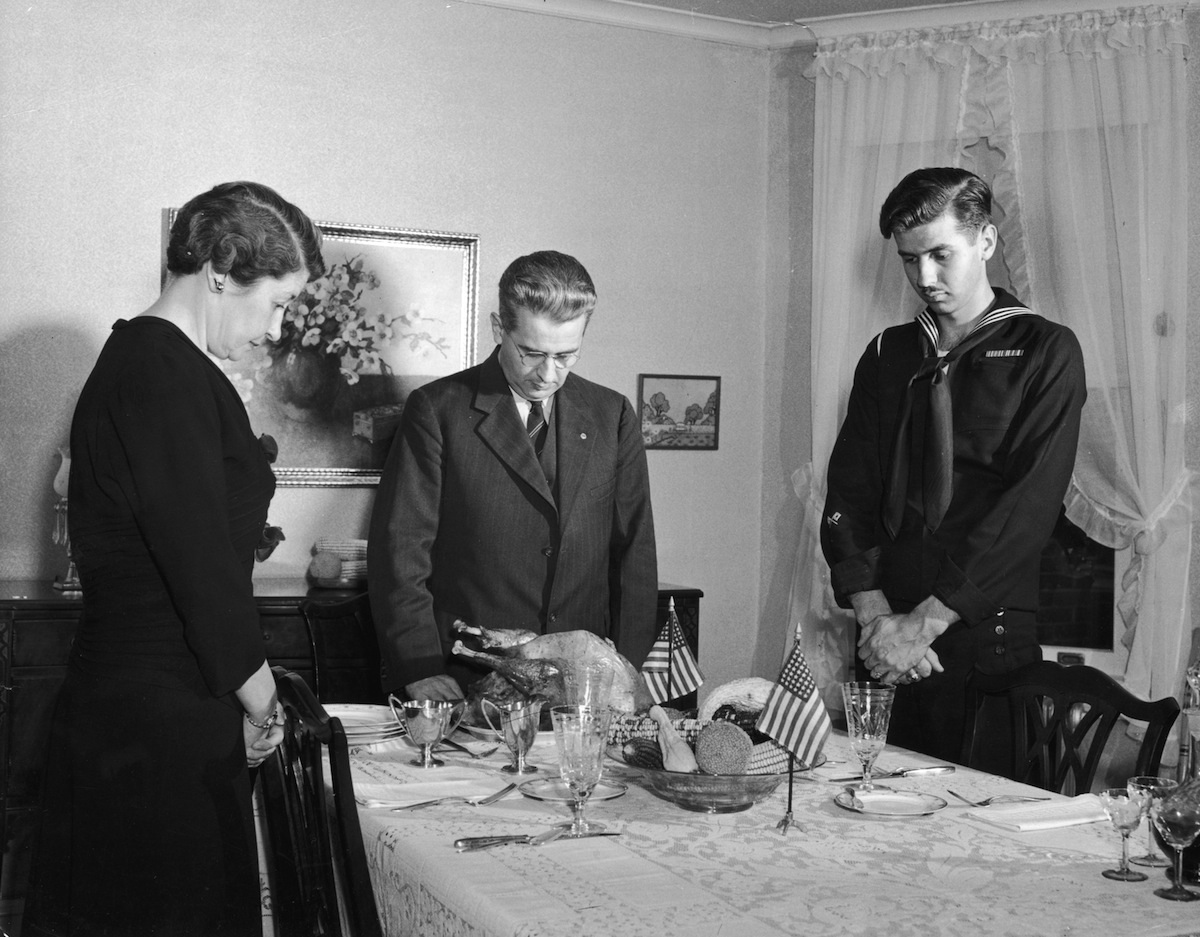
Thanksgiving has a deserved reputation as a day of great gluttony, but many Americans also treat it as a day to give to others. The nation’s soup kitchens fill with volunteers—like the First Family—in honor of the holiday set aside for gratitude.
That tradition of sharing is nothing new. In the years following World War II, as the United States boomed with the post-war plenty for which the late 1940s and 1950s are often remembered, much of the rest of the world suffered greatly. The far-away battles that had brought the U.S. to a position of military, political and economic strength had gutted Europe’s capitals. Refugees searched for new homes, agriculture and trade had been disrupted, currency values went wild—all while population grew.
In 1947, the problem was compounded by a summer drought. Throughout the year, Americans showed that they were unwilling to watch the world suffer while they enjoyed their bounty. “Since January, individual U.S. citizens have been voluntarily giving more than $12 million a month for European relief through private agencies,” TIME reported that November.
Thanksgiving was a particularly visible chance to give back, and the mechanism was simple but heartwarming. As TIME summed it up in 1947: “At thousands of American family Thanksgiving dinners there would be a ‘silent guest.’” Rather than actually buying the food for the silent guest, the cost of that meal would go to the American Silent Guest Committee, sponsored by the Governor of Massachusetts, who would ceremonially launch the drive at Plymouth. The committee would use the money to send food to Europe.
At least one person, however, recommended going an extra step. In her My Day column for Nov. 22, 1947, Eleanor Roosevelt suggested that participants actually set a place for the silent guest, in addition to sending money. Doing so, she wrote, “would remind us of our great good fortune in being able not only to eat ourselves, but to share what we have with others.”
Read more about Thanksgiving history: Why Do We Eat Turkey on Thanksgiving?
More Must-Reads from TIME
- Donald Trump Is TIME's 2024 Person of the Year
- Why We Chose Trump as Person of the Year
- Is Intermittent Fasting Good or Bad for You?
- The 100 Must-Read Books of 2024
- The 20 Best Christmas TV Episodes
- Column: If Optimism Feels Ridiculous Now, Try Hope
- The Future of Climate Action Is Trade Policy
- Merle Bombardieri Is Helping People Make the Baby Decision
Write to Lily Rothman at lily.rothman@time.com